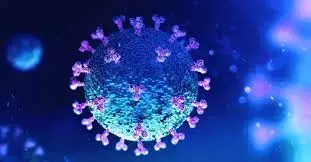- Home
- Medical news & Guidelines
- Anesthesiology
- Cardiology and CTVS
- Critical Care
- Dentistry
- Dermatology
- Diabetes and Endocrinology
- ENT
- Gastroenterology
- Medicine
- Nephrology
- Neurology
- Obstretics-Gynaecology
- Oncology
- Ophthalmology
- Orthopaedics
- Pediatrics-Neonatology
- Psychiatry
- Pulmonology
- Radiology
- Surgery
- Urology
- Laboratory Medicine
- Diet
- Nursing
- Paramedical
- Physiotherapy
- Health news
- Fact Check
- Bone Health Fact Check
- Brain Health Fact Check
- Cancer Related Fact Check
- Child Care Fact Check
- Dental and oral health fact check
- Diabetes and metabolic health fact check
- Diet and Nutrition Fact Check
- Eye and ENT Care Fact Check
- Fitness fact check
- Gut health fact check
- Heart health fact check
- Kidney health fact check
- Medical education fact check
- Men's health fact check
- Respiratory fact check
- Skin and hair care fact check
- Vaccine and Immunization fact check
- Women's health fact check
- AYUSH
- State News
- Andaman and Nicobar Islands
- Andhra Pradesh
- Arunachal Pradesh
- Assam
- Bihar
- Chandigarh
- Chattisgarh
- Dadra and Nagar Haveli
- Daman and Diu
- Delhi
- Goa
- Gujarat
- Haryana
- Himachal Pradesh
- Jammu & Kashmir
- Jharkhand
- Karnataka
- Kerala
- Ladakh
- Lakshadweep
- Madhya Pradesh
- Maharashtra
- Manipur
- Meghalaya
- Mizoram
- Nagaland
- Odisha
- Puducherry
- Punjab
- Rajasthan
- Sikkim
- Tamil Nadu
- Telangana
- Tripura
- Uttar Pradesh
- Uttrakhand
- West Bengal
- Medical Education
- Industry
COVID-19 may intensify bruxism and TMD symptoms leading to orofacial pain

Poland, Israel: Researchers from these two countries have recently come down to note that he aggravation of the psychoemotional status caused by the Coronavirus pandemic can result in bruxism and TMD symptoms intensification and thus lead to increased orofacial pain.
This has been published in the Journal of Clinical Medicine.
Alona Emodi-Perlman and associates from the Section of Dental Education, Department of Oral Rehabilitation, Tel Aviv University, Israel and from the Department of Experimental Dentistry, Wroclaw Medical University, Poland came together to evaluate the effect of the current pandemic on the possible prevalence and worsening of TMD and bruxism symptoms among subjects selected from two culturally different countries: Israel and Poland.
In late December 2019, the new pandemic caused by the SARS-CoV-2 (Severe Acute Respiratory Syndrome Coronavirus 2) infection began to spread around the world. The new situation gave rise to severe health threats, economic uncertainty, and social isolation, causing potential deleterious effects on people's physical and mental health. These effects can influence oral and maxillofacial conditions, such as temporomandibular disorders (TMD) and bruxism, which could further aggravate the orofacial pain.
The International Association for the Study of Pain (IASP) reported that TMD-related facial pain occurs in 9–13% of the general population, while only 4–7% seek treatment. The TMD-related pain may also affect the daily activities, physical and psychosocial functioning, and quality of life of the affected individuals. While, on the other hand, bruxism can act as a potential risk factor for several negative consequences of health such as masticatory muscle pain, oral mucosa damage, mechanical tooth wear, and failures of prosthodontic constructions.
Both the conditions were found to elevate the orofacial pain, hence, cross-sectional online surveys using similar anonymous questionnaires were circulated during the lockdown in both countries. The authors obtained 700 complete responses from Israel and 1092 from Poland. In the first step, data concerning TMDs and bruxism were compared between the two countries. In the second step, univariate analyses (Chi2) were performed to investigate the effects of anxiety, depression, and personal concerns of the Coronavirus pandemic, on the symptoms of TMD, and bruxism symptoms and their possible aggravation. Finally, multivariate analyses (logistic regression models) were carried out to identify the study variables that had a predictive value on TMD, bruxism, and symptom aggravation in the two countries.
The authors observed that the Coronavirus pandemic has caused significant adverse effects on the psychoemotional status of both Israeli and Polish populations, resulting in the intensification of their bruxism and TMD symptoms.
Therefore, they concluded that "the coronavirus pandemic has caused significant adverse effects on the psychoemotional status of both Israeli and Polish populations, resulting in the intensification of their bruxism and TMD symptoms and thus leading to increased orofacial pain."
However, further longitudinal studies are needed to evaluate the pandemic's possible long-term mental and physical consequences. Multifactorial and multicultural research should be performed to identify the risk groups and counteract the aggravation of emotional and physical effects in the case of future global crises, they added.
Dr. Nandita Mohan is a practicing pediatric dentist with more than 5 years of clinical work experience. Along with this, she is equally interested in keeping herself up to date about the latest developments in the field of medicine and dentistry which is the driving force for her to be in association with Medical Dialogues. She also has her name attached with many publications; both national and international. She has pursued her BDS from Rajiv Gandhi University of Health Sciences, Bangalore and later went to enter her dream specialty (MDS) in the Department of Pedodontics and Preventive Dentistry from Pt. B.D. Sharma University of Health Sciences. Through all the years of experience, her core interest in learning something new has never stopped. She can be contacted at editorial@medicaldialogues.in. Contact no. 011-43720751
Dr Kamal Kant Kohli-MBBS, DTCD- a chest specialist with more than 30 years of practice and a flair for writing clinical articles, Dr Kamal Kant Kohli joined Medical Dialogues as a Chief Editor of Medical News. Besides writing articles, as an editor, he proofreads and verifies all the medical content published on Medical Dialogues including those coming from journals, studies,medical conferences,guidelines etc. Email: drkohli@medicaldialogues.in. Contact no. 011-43720751


